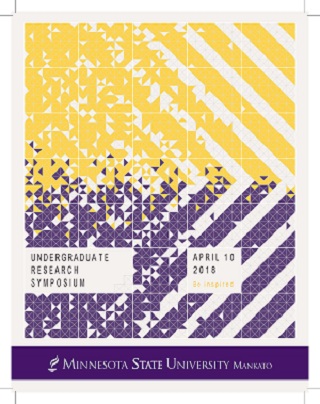Can One Multi-cultural Course Impact Inter-cultural Competency?
Location
CSU 202
Start Date
10-4-2018 11:05 AM
End Date
10-4-2018 12:05 PM
Student's Major
Elementary and Literacy Education Department
Student's College
Education
Mentor's Name
Elizabeth Sandell
Mentor's Department
Elementary and Literacy Education Department
Mentor's College
Education
Description
Inter-cultural competency is “the capability to accurately understand and adapt behavior to cultural differences and commonality” (Hammer & Bennett, 2010). University students can increase their intercultural competence, by understanding behaviors and cultural differences. MSU's academic goals include preparation of “students with course content and the analytical and reflective skills to better understand diversity across the world” (MSU). One way to do this is by participating in a course such as Human Relations in a Multicultural Society. The course's objective was to help students in understand their own cultural roots, as well as global culture groups. This study responded to the question: Can one undergraduate multicultural course impact interculturally competency? The data set included more than 800 students who took the general education course, Human Relations in a Multicultural Society. Students completed the Intercultural Development Inventory (IDI) at the beginning and at the conclusion of the semester (Hammer, Bennett, & Wiseman, 2003). Data analysis showed that the course made a statistically significant difference in student cross-cultural competence. The university may use this information in considering the effectiveness of its cultural diversity goal: experience diversity with supervised reflection and recognize and respond to conditions of marginalized populations. University departments will use the information in planning, evaluating, and promoting opportunities in the community.
Can One Multi-cultural Course Impact Inter-cultural Competency?
CSU 202
Inter-cultural competency is “the capability to accurately understand and adapt behavior to cultural differences and commonality” (Hammer & Bennett, 2010). University students can increase their intercultural competence, by understanding behaviors and cultural differences. MSU's academic goals include preparation of “students with course content and the analytical and reflective skills to better understand diversity across the world” (MSU). One way to do this is by participating in a course such as Human Relations in a Multicultural Society. The course's objective was to help students in understand their own cultural roots, as well as global culture groups. This study responded to the question: Can one undergraduate multicultural course impact interculturally competency? The data set included more than 800 students who took the general education course, Human Relations in a Multicultural Society. Students completed the Intercultural Development Inventory (IDI) at the beginning and at the conclusion of the semester (Hammer, Bennett, & Wiseman, 2003). Data analysis showed that the course made a statistically significant difference in student cross-cultural competence. The university may use this information in considering the effectiveness of its cultural diversity goal: experience diversity with supervised reflection and recognize and respond to conditions of marginalized populations. University departments will use the information in planning, evaluating, and promoting opportunities in the community.
Recommended Citation
Rousemiller, Amanda and David Edwards. "Can One Multi-cultural Course Impact Inter-cultural Competency?." Undergraduate Research Symposium, Mankato, MN, April 10, 2018.
https://cornerstone.lib.mnsu.edu/urs/2018/oral-session-07/3




